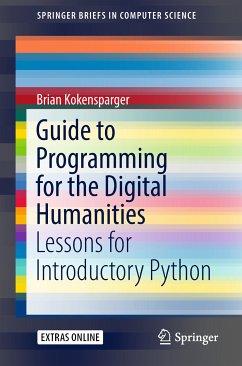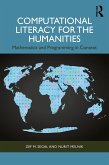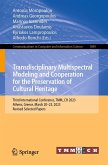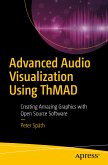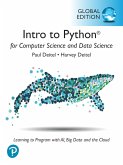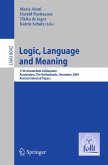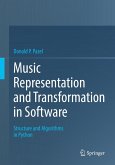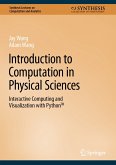As an introduction to programming for the Digital Humanities (DH), this book presents six key assignments oriented on DH topics. The topics include Computing Change Over Time (calculating burials at a historic cemetery), Visualizing Change Over Time (visualizing the burials at the historic cemetery), Textual Analysis (finding word frequencies and "stop words" in public domain texts), XML Transformation (transforming a simplified version of XML into HTML styled with CSS), Stylometry (comparing the measured features of graphic images), and Social Network Analysis (analyzing extended relationships in historic circles).
The book focuses on the practical application of these assignments in the classroom, providing a range of variations for each assignment, which can be selected on the basis of students' specific programming background and skills; "atomic" assignments, which can be used to give students the experience they need to successfully complete the main assignments; and some common pitfalls and gotchas to manage in the classroom.
The book's chief goals are to introduce novice computer science (CS) students to programming for DH, and to offer them valuable hands-on experience with core programming concepts.
Dieser Download kann aus rechtlichen Gründen nur mit Rechnungsadresse in A, B, BG, CY, CZ, D, DK, EW, E, FIN, F, GR, HR, H, IRL, I, LT, L, LR, M, NL, PL, P, R, S, SLO, SK ausgeliefert werden.
Hinweis: Dieser Artikel kann nur an eine deutsche Lieferadresse ausgeliefert werden.
"Guide to programming for the digital humanities: lessons for introductory Python is written in a voice that is clear, easy to read, and simple to understand. This fantastically well-organized book first gives the reader a series of progressively more detailed top-down views of its content ... and some observations regarding the author's revisions--which are based on (still ongoing) years of teaching Python for DH to future-oriented undergraduates." (Chaim Scheff, Computing Reviews, July 29, 2019)
"Kokensparger (Creighton Univ.) uses assignments for a digital humanities Python course as a guide to teaching an introductory computer science course to students with diverse interests. Kokensparger's strong background in instructional technology informs the design, rationale, and presentation of a sequence of six programming assignments." (C. Vickery, Choice, Vol. 56 (10), June, 2019)
"Kokensparger (Creighton Univ.) uses assignments for a digital humanities Python course as a guide to teaching an introductory computer science course to students with diverse interests. Kokensparger's strong background in instructional technology informs the design, rationale, and presentation of a sequence of six programming assignments." (C. Vickery, Choice, Vol. 56 (10), June, 2019)
Es gelten unsere Allgemeinen Geschäftsbedingungen: www.buecher.de/agb
Impressum
www.buecher.de ist ein Internetauftritt der buecher.de internetstores GmbH
Geschäftsführung: Monica Sawhney | Roland Kölbl | Günter Hilger
Sitz der Gesellschaft: Batheyer Straße 115 - 117, 58099 Hagen
Postanschrift: Bürgermeister-Wegele-Str. 12, 86167 Augsburg
Amtsgericht Hagen HRB 13257
Steuernummer: 321/5800/1497
USt-IdNr: DE450055826
Bitte wählen Sie Ihr Anliegen aus.
Rechnungen
Retourenschein anfordern
Bestellstatus
Storno

